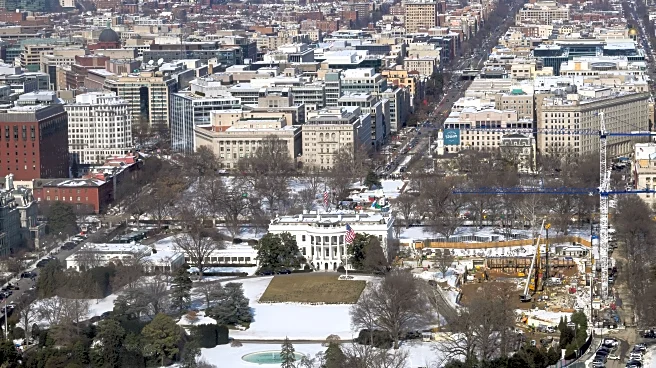What's Happening?
Several major news organizations, including Fox News, ABC, CBS, NBC, and CNN, have rejected new reporting rules proposed by Defense Secretary Pete Hegseth for journalists based in the Pentagon. These rules require
journalists to report only news approved by Hegseth's team, threatening expulsion from the Pentagon for non-compliance. The Associated Press and other outlets have expressed concerns that these rules undermine the First Amendment and impede public access to government information. The Pentagon claims the rules are 'common sense media procedures,' but news organizations argue they limit journalistic freedom and public knowledge.
Why It's Important?
The rejection of the Pentagon's new rules by major news organizations highlights a significant conflict between government control and press freedom. This situation underscores the ongoing tension between the Trump administration and media outlets, which have faced various legal challenges and restrictions. The rules could potentially limit independent coverage of military affairs, affecting public understanding of defense policies and operations. The refusal to comply with these rules by prominent news organizations signals a strong stance in favor of journalistic independence and transparency.
What's Next?
If the Pentagon enforces these rules, news organizations may face expulsion from the Pentagon, leading to potential legal battles over press access and freedom. The situation could escalate to court, where the legality of the rules and their impact on the First Amendment may be challenged. News outlets have pledged to continue covering military affairs independently, which may result in alternative reporting methods outside Pentagon grounds. The outcome of this conflict could set a precedent for future interactions between government entities and the press.
Beyond the Headlines
The broader implications of this development include potential shifts in how military information is disseminated to the public. The rules could lead to increased scrutiny of government transparency and accountability, prompting discussions on the balance between national security and press freedom. This situation may also influence public perception of the Trump administration's approach to media relations and its impact on democratic principles.










